
Jonathan Lambert was a staff writer covering biological sciences at Science News from 2019 to 2021. He earned a master’s degree from Cornell University studying how a bizarre day-long mating ritual helped accelerate speciation in a group of Hawaiian crickets. A summer at the Dallas Morning News as a AAAS Mass Media fellow sparked a pivot from biologist to science journalist. He previously wrote for Quanta Magazine, NPR, and Nature News.

Trustworthy journalism comes at a price.
Scientists and journalists share a core belief in questioning, observing and verifying to reach the truth. Science News reports on crucial research and discovery across science disciplines. We need your financial support to make it happen – every contribution makes a difference.
All Stories by Jonathan Lambert
-
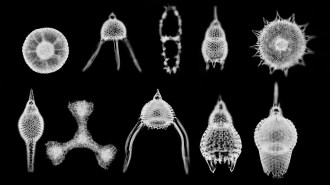 Earth
Earth50 years ago, scientists named Earth’s magnetic field as a suspect in extinctions
In 1970, researchers saw a link between magnetic pole reversals and extinctions. Fifty years later, scientists have uncovered more suggestive examples but no strong evidence of a direct link.lamb
-
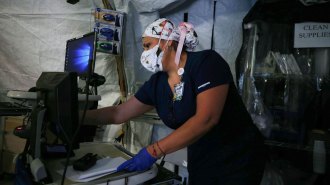 Health & Medicine
Health & MedicineCoronavirus cases are skyrocketing. Here’s what it will take to gain control
Basic public health measures can still curb COVID-19, if everyone does their part.
-
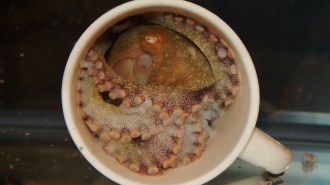 Animals
AnimalsHow octopuses ‘taste’ things by touching
Octopus arms are dotted with cells that can "taste" by touch, which might enable arms to explore the seafloor without input from the brain.
-
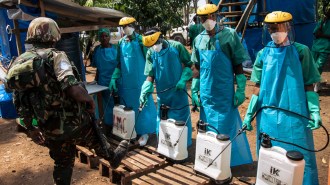 Health & Medicine
Health & MedicineThe FDA has approved the first treatment for Ebola
Lab-made antibodies developed by Regeneron marshal an immune response and curb the Ebola virus’s ability to infect cells.
-
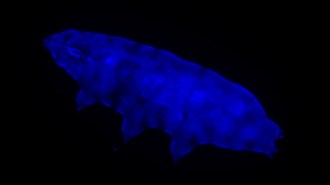 Animals
AnimalsGlowing blue helps shield this tardigrade from harmful ultraviolet light
Tardigrades have a newly discovered trick up their sleeve: fluorescence.
-
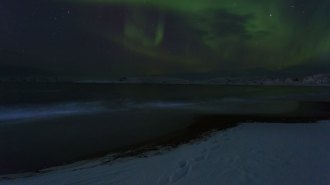 Ecosystems
EcosystemsTrapped under ice, light-loving algae grow in the dark Arctic winter
Blocked off from nearly all light beneath a thick layer of ice and snow in the winter, marine phytoplankton in the Arctic still find a way to thrive.
-
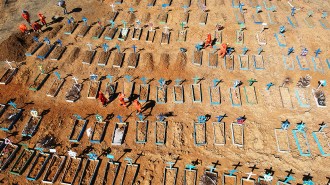 Health & Medicine
Health & MedicineA Brazilian city devastated by COVID-19 may have reached herd immunity
Up to half of Manaus was infected at the epidemic’s peak, which slowed further spread of the virus but also led to many deaths, scientists say.
-
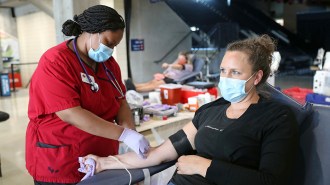 Health & Medicine
Health & MedicineBlood donations show that the United States is still nowhere near herd immunity
Testing donated blood for antibodies to the coronavirus highlights that the vast majority of the United States remains susceptible to infection.
-
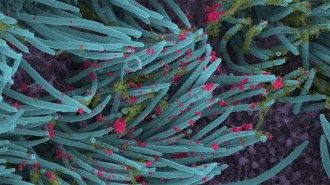 Health & Medicine
Health & MedicineLung cell images show how intense a coronavirus infection can be
Microscopic views reveal virus particles coating the hairlike cilia of an airway cell from the lungs.
-
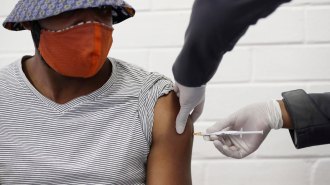 Health & Medicine
Health & MedicineHere’s what pausing the AstraZeneca-Oxford coronavirus vaccine trial really means
A coronavirus vaccine trial was paused after a volunteer had a possible adverse reaction. Such routine measures help ensure new vaccines are safe.
-
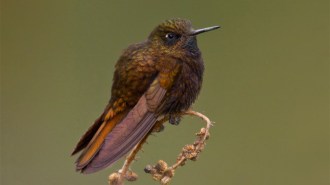 Animals
AnimalsThis hummingbird survives cold nights by nearly freezing itself solid
To survive cold Andean nights, the black metaltail saves energy by cooling itself to record-low temperatures, entering a state of suspended animation.
-
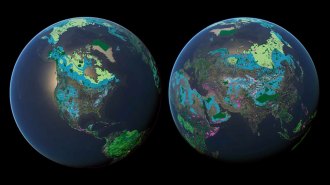 Ecosystems
EcosystemsProtecting half the planet could help solve climate change and save species
An analysis lays out where new land protections could complement existing protected areas to achieve various conservation and climate goals.